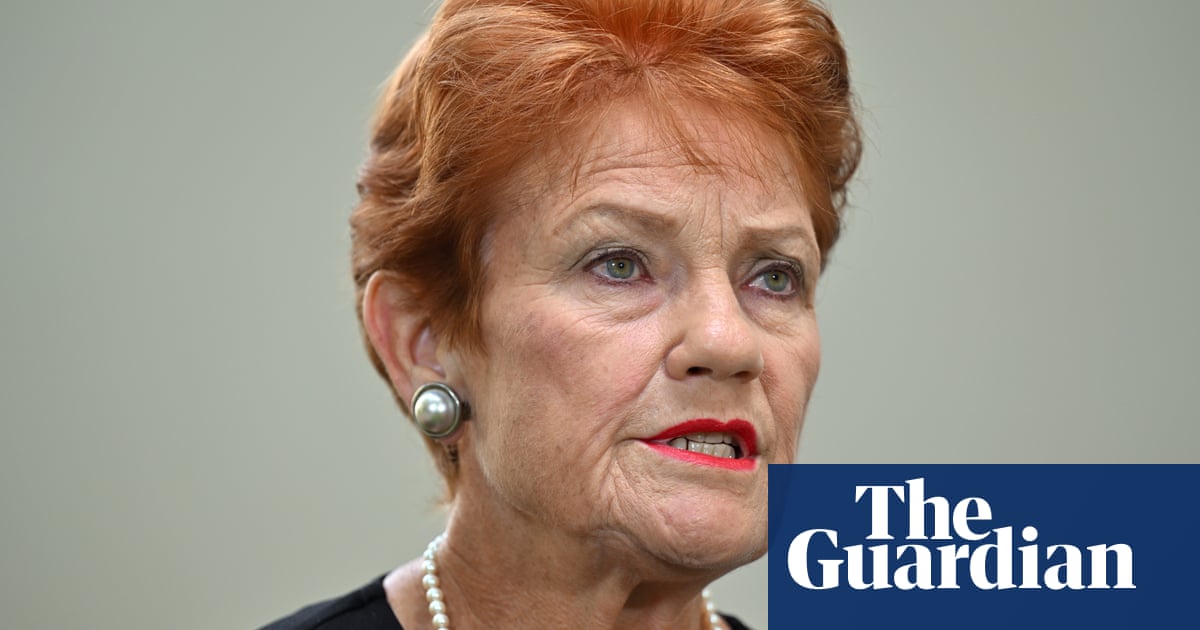One Nation has secured a surprise boost to its numbers in federal parliament, after businessman Tyron Whitten won Western Australia’s sixth Senate seat.
The result is the first timethe party founded by Pauline Hansonhas won an upper house seat outside Queensland at a half-Senate election, and came on the same day One Nation’s Malcolm Roberts retained his sunshine state seat, defeating Liberal-National party defector Gerard Rennick.
Labor had hoped to win the last Senate spot in WA, bringing its numbers in the chamber to 30. Deep Singh, a former organiser with the United Workers Union, was in a close race for the last spot.
The Australian Electoral Commission finalised the WA count on Thursday, with Labor’s Ellie Whiteaker and Varun Ghosh elected, alongside Liberals Slade Brockman and Matt O’Sullivan and the Greens’ Jordon Steele-John.
Sign up for Guardian Australia’s breaking news email
One Nation said Whitten, who co-founded the construction services company Whittens with his brother Clayton in 2001, has “always encouraged his family and those around him to take action when they see injustice or broken policies”.
A profile published by One Nation said he believes in a strong national energy policy, and wants to curb overseas arrivals into Australia, blaming migrants for housing costs and pressure on infrastructure and essential services.
“Our government is selling out Australians with policies that benefit corporations and global bureaucracies while leaving our own people struggling. It’s time to put Australians first,” Whitten said.
“One Nation holds the values that my grandfather went to war for. It is the least I can do to repay his service to his country and give mine and all Australian families the way of life we sometimes take for granted.”
In social media posts he has criticised multiculturalism and called for migrants to respect Australian values and the country’s “way of life”. He said Australians should speak up against overseas arrivals who try and impose their culture here.
The result means One Nation will have three senators, including Hanson, who is up for re-election at the end of the coming term.
The Australian Electoral Officer for Western Australia, Anita Ratcliffe, announced the final distribution of preferences had been completed about 3pm.
Sign up toBreaking News Australia
Get the most important news as it breaks
after newsletter promotion
“As with all aspects of the count, scrutineers appointed by the candidates were able to witness the automated distribution of preferences undertaken today,” she said.
On social media, One Nation called Whitten’s win a “well-deserved result for a passionate advocate of the people”.
“We look forward to the strong voice he will bring to Parliament on behalf of Western Australians,” the party said.
Along with Roberts, the Liberal-National party’s Paul Scarr and Susan McDonald were elected inQueensland, alongside Labor’s Nita Green and Corinne Mulholland, and Greens leader Larissa Waters.
Rennick quit the LNP in mid-2024after being pushed off the Senate ticket in favour of party treasurer Stuart Fraser. Rennick’s subsequent challenge to the result was unsuccessful.
Roberts thanked voters for reelecting him and promised to continue his “mission as a servant to the people of Queensland and Australia”.
Counting is continuing in the Sydney lower house seat of Bradfield,with Liberal Gisele Kapterian ahead of independent Nicolette Boele by seven votes at 5pm on Thursday.
